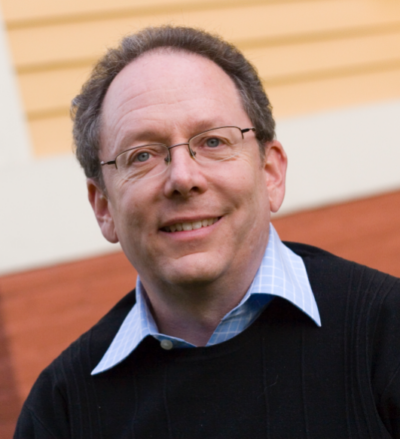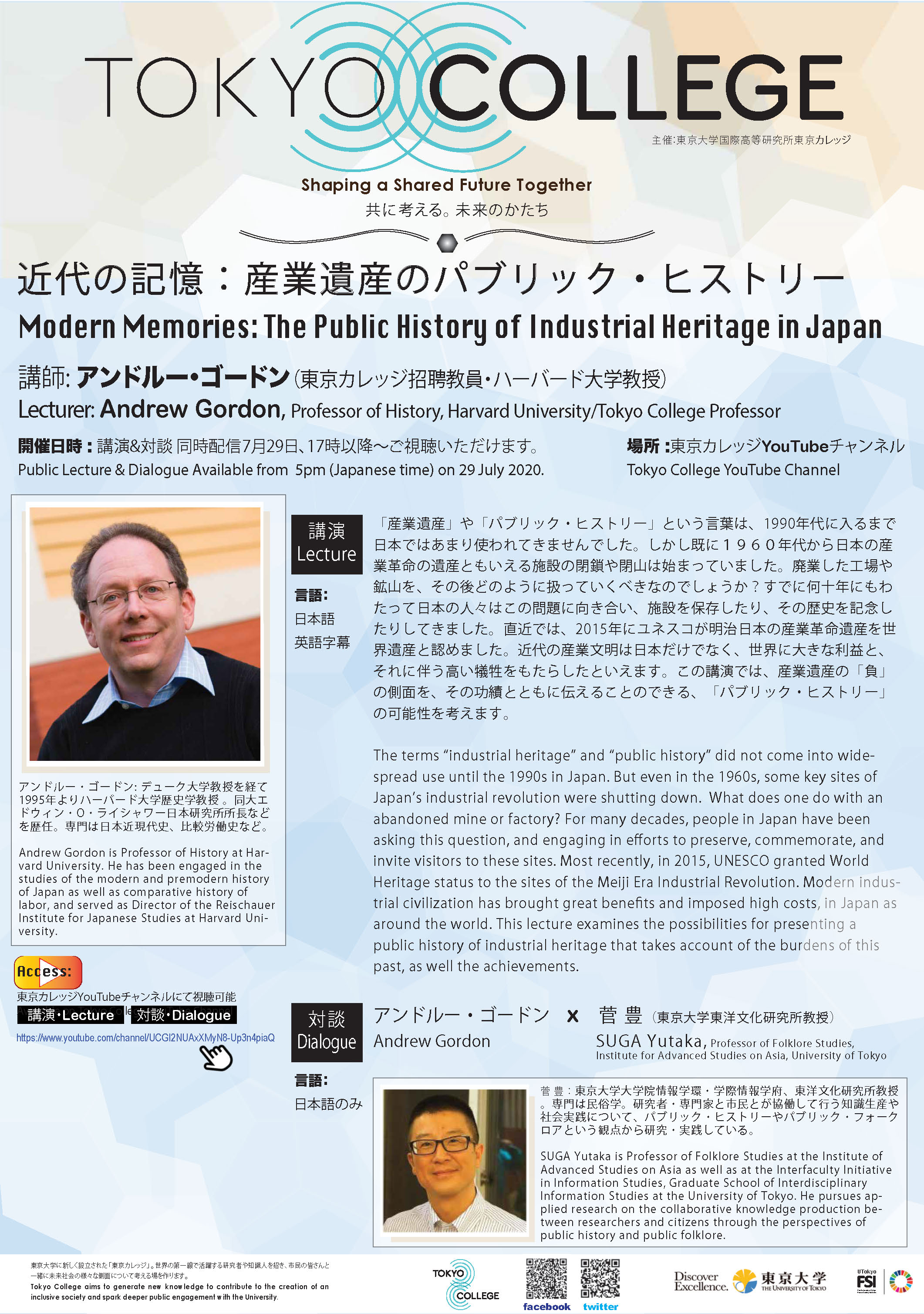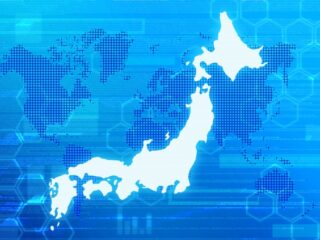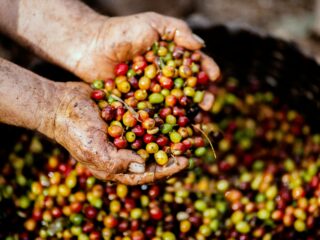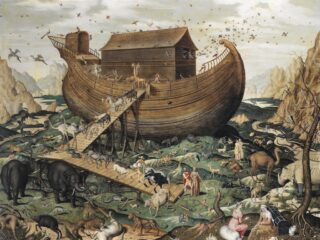Modern Memories: The Public History of Industrial Heritage in Japan
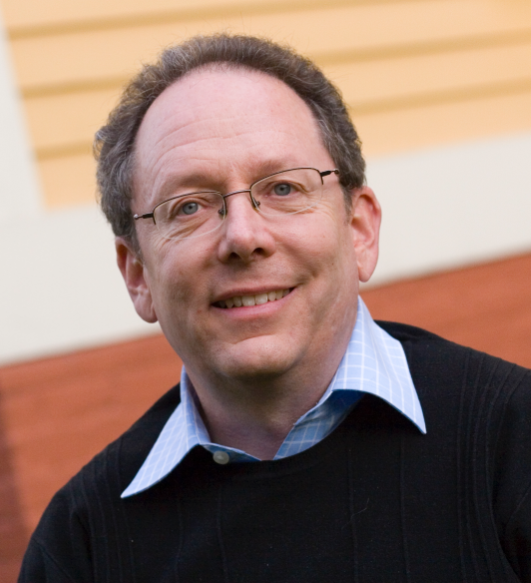
You can watch the recorded videos here.
Lecture (Japanese with English subtitle)
Dialogue (Japanese language only)
| Date(s) | Available on YouTube from Wednesday, 29 July 2020, 17:00- |
|---|---|
| Venue |
Tokyo College YouTube Channel(https://www.youtube.com/channel/UCGI2NUAxXMyN8-Up3n4piaQ) |
| Language | Lecture (Japanese with English subtitles) Dialogue (Japanese) |
| Abstract |
The terms “industrial heritage” and “public history” did not come into widespread use until the 1990s in Japan. But even in the 1960s, some key sites of Japan’s industrial revolution were shutting down. What does one do with an abandoned mine or factory? For many decades, people in Japan have been asking this question, and engaging in efforts to preserve, commemorate, and invite visitors to these sites. Most recently, in 2015, UNESCO granted World Heritage status to the sites of the Meiji Era Industrial Revolution. Modern industrial civilization has brought great benefits and imposed high costs, in Japan as around the world. This lecture examines the possibilities for presenting a public history of industrial heritage that takes account of the burdens of this past, as well the achievements. |
| Program |
【Lecture】Modern Memories: The public history of industrial heritage in Japan Speaker: Andrew Gordon (Professor of History, Harvard University) 【Dialogue】 Andrew Gordon × SUGA Yutaka (Professor of Folklore Studies, Institute for Advanced Studies on Asia, University of Tokyo) |
| Speaker Profile |
Andrew Gordon is Professor of History at Harvard University. He has been engaged in the studies of the modern history of Japan as well as comparative history of labor, and served as Director of the Reischauer Institute for Japanese Studies at Harvard University. SUGA Yutaka is Professor of Folklore Studies at Interfaculty Initiative in Information Studies, Graduate School of Interdisciplinary Information Studies, and the Institute of Advanced Studies on Asia at the University of Tokyo. He pursues applied research on the collaborative knowledge production between researchers and citizens through the perspectives of public history and public folklore. |
| Organized by | Tokyo College, The University of Tokyo |
| Contact | tcevent@graffiti97.co.jp |


